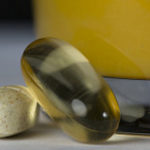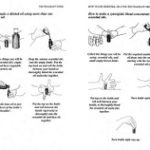Essential oils are chemical compounds with aromatic properties found in the seeds, roots, stems, bark, flowers, and other parts of plants. For centuries, there are many stories of healing properties of these precious oils. There were also many ways essential oils were extracted out of different plants. For example, rose oil was extracted by massaging leaves with animal fat. A lot of essential oils, like Lemon and Orange, are cold pressed. The vast majority of oils from plants are steam distilled at a certain temperature and a specific pressure. The most therapeutic oils with optimum benefits are taken after the first distillation. I do not recommend purchasing any oils from any other distillation. Some companies will do further distillation to improve the oil’s fragrance, but the chemical compounds of the plant have been altered. YIKES! A lot of companies also produce independent testing reports on the oils and even safety reports. Understand there is no regulation in purity or potency of essential oils, so these resources are incredibly valuable.
How can you use essential oils once you find a great company?
Essential oils can be used aromatically (with a diffuser or by simply smelling the oil) and topically (on the skin).
Aromatic use is very safe. Always make sure the diffuser you purchase is compatible with the oils you purchase. Cleaning the diffuser with each type of oil you use might also be in order, but many companies have improved on the diffusers used and cleaning isn’t necessary every time you switch oils. Aromatic use is a great way to freshen hallways, bathrooms, and other areas. I love diffusing oils when company is over or in my bedroom to assist in relaxation.
Topical use is also very common and safe. The only controversial topic of topical use is neat application. Neat application occurs when the essential oils are put directly on the skin without dilution. Many companies state that most of their oils are safe for neat application. Use these recommendations with a grain of salt. Essential oils are VERY potent. A single drop of oil is equal to seventy-five cups of tea with that particular plants. Such potency can be an issue with skin irritation. The most important rule with essential oils is to dilute in carrier oils. Carrier oils are plant based fatty oils used to dilute essential oils. A good rule of thumb is to always perform a skin patch test using 1 drop essential oil and 1ml carrier oil. This creates a 5% solution. So, if you have 5ml carrier oil (or 1 teaspoon), 5 drops of essential oil is the maximum to maintain the 5% solution. There are many safe carrier oils like vegetable oil, coconut oil, sweet almond oil, grape seed oil, jojoba oil, olive oil, and other oils. If you have a vitamin E allergy, Jojoba oil is a great option. If you or a family member has an allergy to nuts, please check for nut based oils in blends and steer clear of almond and coconut carrier oils. Ingredients should be listed on labels, however, it’s always a safe idea to call the companies directly. Use extra caution with young skin, elderly skin, sensitive skin, damaged skin, inflamed skin, and especially diseased skin. These skin types absorb more oil and are usually sensitive to the potency. Topical use of Wintergreen, peppermint, and birch should be avoided by people with sensitive skin. Aromatic use are safe for pregnant women, but caution should be shown with topical application, especially in the first three months. Pregnant women should avoid the following oils: Aniseed, Basil, Birth, Camphor, Hyssop, Mugwort, Parsley seed or leaf, Pennroyal, Sage, Tansy, Tarragon, Wintergreen, Wormwood, Thuja, Clary Sage, and any other oil with phytoestrogen qualities. Internal use is also not recommended for pregnant women. If reaction occurs, dilute with carrier oils, not water. No essential oils on children younger than 18 months. Always keep oils out of reach of children.
Some books suggest topical application on pets. Do not use essential oils on pets. They cannot handle the potency. Some oils that are perfectly safe for us have been shown to be highly toxic for animals. Oils containing terpenes, such as lavender an thyme, can actually cause liver and/or kidney failure in cats. Lavender and Thyme have been lauded in some books as fantastic flea and tick control. Tansy has been toxic to both cows and horses. Use caution around pets. Accidental exposure may occur, watch your pet for any signs of distress. Some of my animals have licked where I have put oils on my feet, and they had no issues at all.
Internal use is the most controversial topic of aromatherapy. A lot of reputable companies endorse internal use, however, most Aromatherapy and Herbal Associations, including the International Federation of Aromatherapists (IFA) contraindicate internal use of essential oils in their code of ethics by health care providers. The National Association of Holistic Aromatherapy discourages aromatherapists of using essential oils internally unless trained to do so. They are currently exploring the safety of internal use. So contact a Certified Clinical Aromatherapist (CCA) before internal use.
DISCLAIMER: There is no uniform method for the testing of “therapeutic grade” essential oils. The Food and Drug Administration does not test essential oils, and none of my statements today have been tested or endorsed by the FDA or USDA. Contents of this article do not replace the care or advice of a physician. The author of this article is not a physician, and she will NOT diagnose, treat or give medical advice regarding any disease or illness. If you are pregnant or nursing, please refrain from use unless under the direction of a healthcare professional. Use at your own risk.
For more on aromatherapy and essential oils, follow me on Twitter.com @DoTerra865
Article Source:
http://EzineArticles.com/expert/Amanda_D_Webster/1685098










Leave a reply